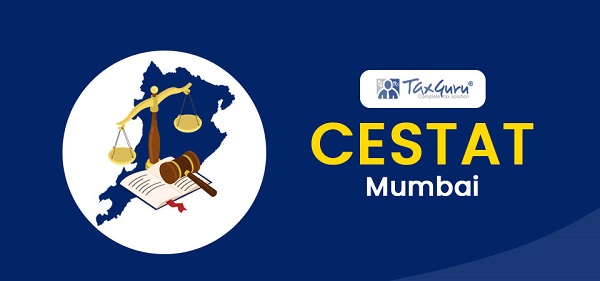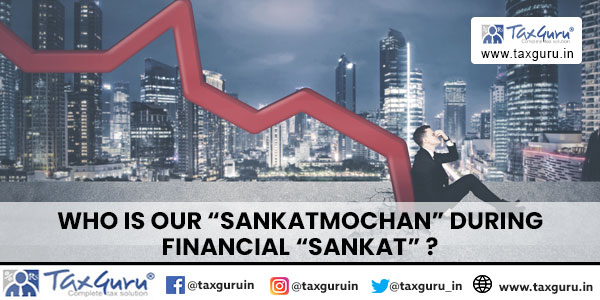Case Law Details
Cestat, New Delhi Bench
Bharat Sanchar Nigam Ltd.
Versus
Commissioner of Customs & Central Excise
FINAL ORDER NOS. 1381/2012 SM (BR), S/1018/2012 SM (BR) & M/239-240/2012 SM (BR)
APPLICATION NOS. ST/COD/2276 OF 2012,
ST/MISC./2275 OF 2012 &
ST/Stay/2274 of 2012
APPEAL NO. ST/907 OF 2012
SEPTEMBER 3, 2012
ORDER
1. The prayer in the application is to condone the delay of 388 days in filing the present appeal.
2. After hearing both the sides, I find that the impugned order was passed on 23.2.2011 and was received by the appellant on 25.2.11 where as the appeal stand filed by the appellant on 28.6.12.
3. As per the appellant though the impugned order was received on 25.2.11, they took sometime to consider the impact of the same from administrative, financial and legal angle and after due deliberations at various official levels, decided to file the appeal before the Tribunal. After the receipt of the impugned order of Commissioner (Appeals), the same was forwarded to their Circle office situated at Jaipur on 10.8.2011, which in turn communicated the same to their corporate office. Subsequently the matter was sent to their advocate and as, even after repeated reminders, the opinion of the learned advocate was not given, they send numerous reminders to the advocate. Ultimately the advocate to whom the file was entrusted gave reply to their circle office on 30.9.11 for the appointment of the advocate. It was only on 4.10.11 the Corporate office wrote back to the appellant to engage the advocate nominated by them. The Accounts Officer of the appellant visited Delhi for discussion and preparation of appeal on 2.12.11 and handed over the papers to their advocate on 11.6.12 for preparation of appeal. The same was prepared and ultimately filed before the Tribunal on 28.6.12.
4. As is seen from the above sequence of events put forth by the appellant, the impugned order admittedly was received by them in the month of February, 2011 but the action on the same was taken for the first time on 10.8.11 when the appellant communicated the order to their Circle Office. The normal period of limitation for filing the appeal is three months which expired on or around 23.5.11. As such, the action of the appellant to send a copy of the order to their Circle Office on 10.8.11 is itself beyond the expiry of normal period of limitation. In any case, even according to the appellant’s advocates’ advice to file the appeal was given to them on 1.8.11 but the appellant took the action on the said order only on 11.6.12. In between the AO of the appellant also visited the Delhi for discussion and preparation of the appeal on 2.12.11 but the papers for preparation of appeal were handed over to the Advocate after a period of 6 months i.e. on 11.6.12.
5. The question required to be decided is as to whether the above facts placed before the Tribunal can be held to be sufficient cause for the purpose of condoning the delay or the same reflects upon the casual attitude of the appellant. Admittedly, “sufficient cause” for making the appeals/ applications within the period of limitation should be understood and applied in a reasonable, pragmatic, practical and liberal manner depending upon the facts and circumstances available in each case. We are aware that the expression ‘sufficient cause’ should be liberally construed so as to advance substantial justice. However, such liberal construction is required to be extended only when the delay is not on account of any deliberate acts, want of bonafide , deliberate inaction or negligence on the part of the appellant. By applying the above principle to facts of the present case, we find that the delay has occurred not account of any substantial and sufficient reasons but on account of negligence of the appellant. If such delays are condoned, the meaning of limitation of thee months provided by legislature in the Central Excise Act would become meaningless and redundant. The sufficient cause for condoning such delays should be the one which pursue the Court in exercise of its judicial discretion, to treat the delay as excusable one, while ensuring that the purpose of law of limitation does not get frustrated.
6. While examining the reasons, it has to necessarily concluded that the same are not sufficient because as the delay has consciously occurred in the hands of the appellant. The huge gaps between two actions like sending the order to the Circle office, advise of the advocate, subsequent visit of the Accounts Officer and handing over of papers to the advocate, reflects upon very casual approach adopted by the appellant which cannot be considered to be reasonable. As such, I find no reason to condone the huge delay of 388 days. The COD application is rejected.
7. As the delay has not been condoned, stay petition and appeal are also dismissed as barred by limitation.



















